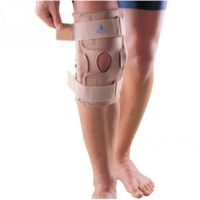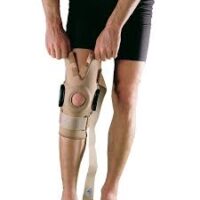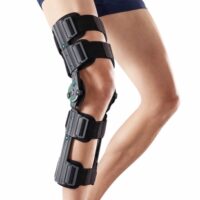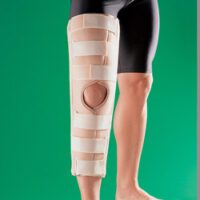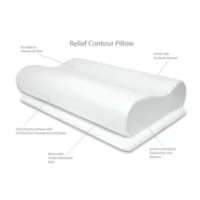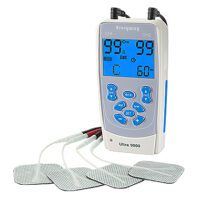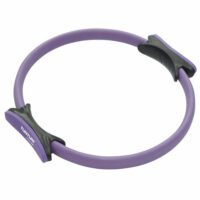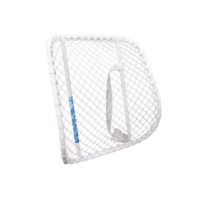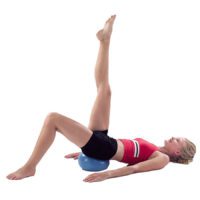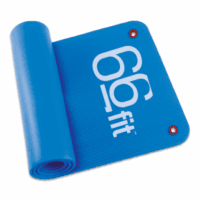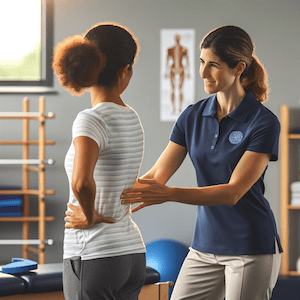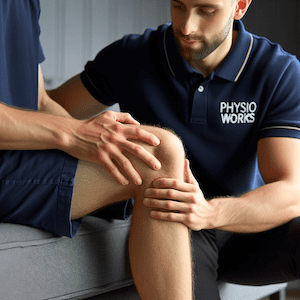ACL Injury FAQs
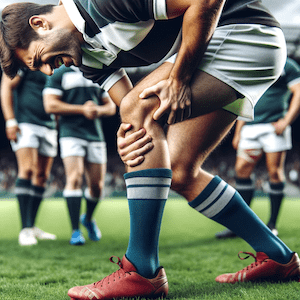
ACL Injury FAQ Guide
Welcome to our ACL FAQs guide, where we'll provide straightforward answers to your questions about ACL injuries. Discover what an ACL injury is and its main function in your knee. Learn about Level I ACL-risk sports and effective injury prevention strategies. Understand how ACL diagnoses are made and recognise the symptoms of a tear. Uncover insights on MRI scans for knee injuries and explore various treatment options, including whether surgery is necessary.
We'll also shed light on living without an ACL, the choice between reconstruction and exercise, and the best surgical approaches. Plus, find out what might happen if you opt out of surgery. Finally, gain valuable insights into post-ACL reconstruction rehabilitation and the role of ACL braces. Get ready to dive into the world of ACL injuries and solutions.
Common ACL Questions
- What is an ACL Injury?
- What is the Main Function of the ACL?
- What are Level I ACL-Risk Sports?
- ACL Injury Prevention Strategies
Diagnosing ACL Injuries
- What are the Symptoms of an ACL Tear?
- How Can You Tell if You Have a Torn ACL?
- How Do I Know If I Need An MRI On My Knee?
ACL Treatment Options
ACL Surgical Reconstruction
- Is Surgery Needed For My ACL Injury?
- What Happens If You Don’t Get Surgery On Your ACL?
- What is the Best Surgery for ACL Tear?
- Post-ACL Reconstruction Rehabilitation Considerations
Related Knee Injuries
- Posterolateral Corner Injury
- Knee Ligament Injuries
- Knee Meniscus Injuries
- Common Knee Injuries
- Knee Pain & Conditions
Conclusion
In summary, this ACL Injury FAQ page provides hyper links to comprehensive insights into the symptoms, treatment options, and recovery processes for ACL injuries. Armed with this knowledge, you can make informed decisions about your health and recovery journey.
If you suspect an ACL injury or are experiencing persistent knee problems, it's crucial to seek professional medical advice. Don't hesitate to book an appointment with a knee physiotherapist or Orthopaedic surgeon for a diagnosis and personalised treatment plan.
Remember, timely intervention and professional guidance are key to a successful recovery and returning to your active lifestyle.
Related Articles
- ACL Injury Treatment - Readers will find comprehensive treatment options for ACL injuries, including both surgical and non-surgical methods.
- Knee Ligament Injuries - This page explains different types of knee ligament injuries, including the ACL, and their treatment options.
- Knee Pain & Conditions - Discover various knee conditions and their symptoms, treatment, and prevention strategies.
- Meniscus Tear - Learn about meniscus tears, a common knee injury that can accompany ACL injuries, including how they are diagnosed and treated.
- Post-Surgery Knee Rehabilitation - Gain insights into effective rehabilitation strategies following knee surgery, which is crucial for ACL injury recovery.
- Knee Braces for ACL Injuries - This article discusses the role of knee braces in supporting and protecting the ACL during recovery.
- Sports Physiotherapy - Find out how sports physiotherapy can help in the prevention and treatment of sports-related injuries, including ACL injuries.
- Preventing ACL Injuries in Women - Learn why ACL injuries are more common in women and discover strategies for prevention.
- Knee Arthritis - Understand how ACL injuries can lead to or exacerbate knee arthritis, and explore treatment options.
- Running Injuries - Since running can impact ACL injuries, this page provides insights on prevention and management of running-related knee issues.







